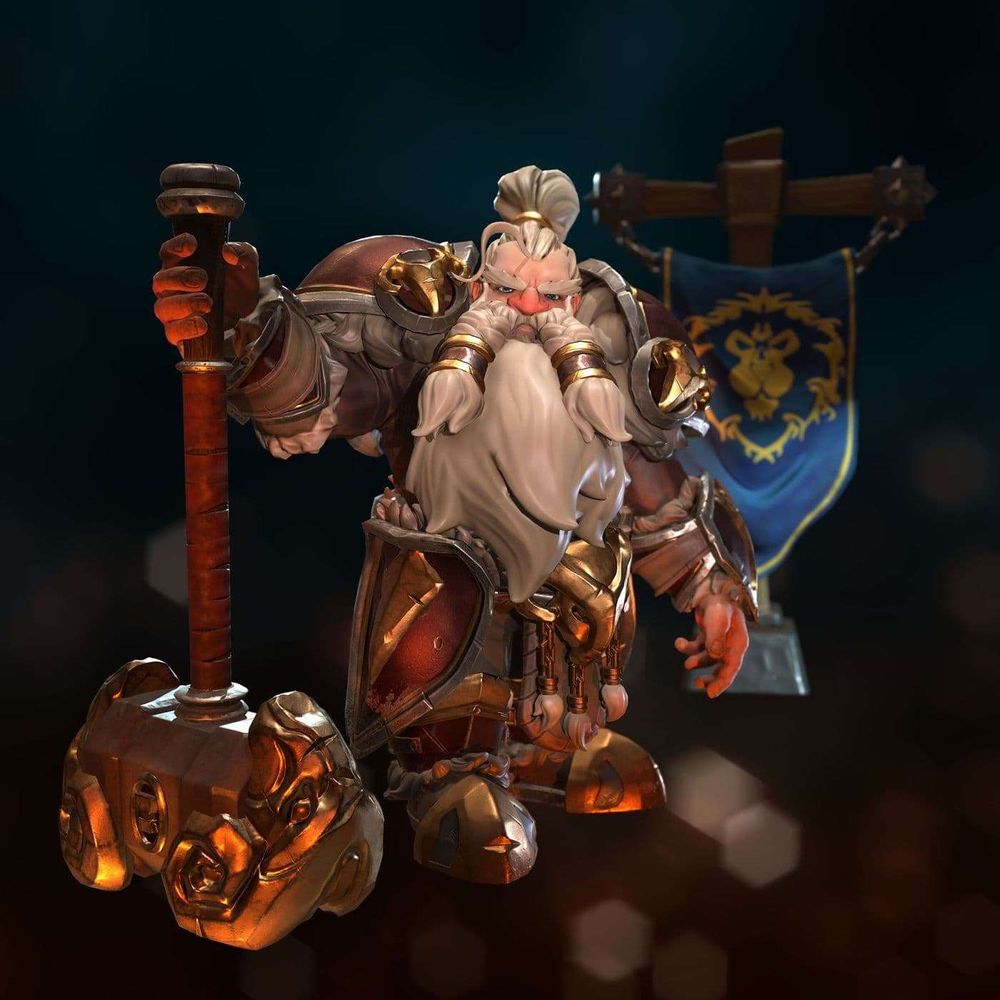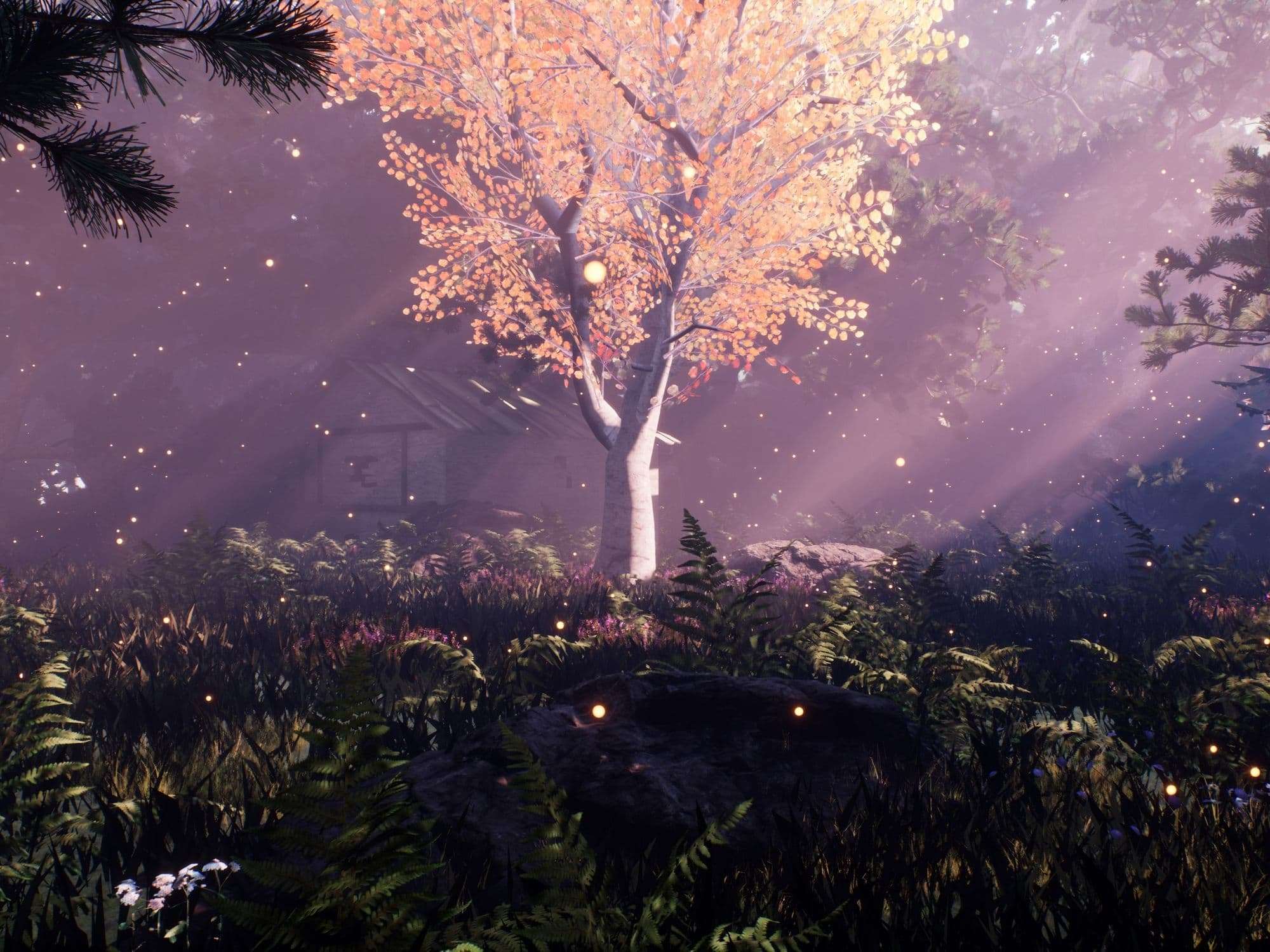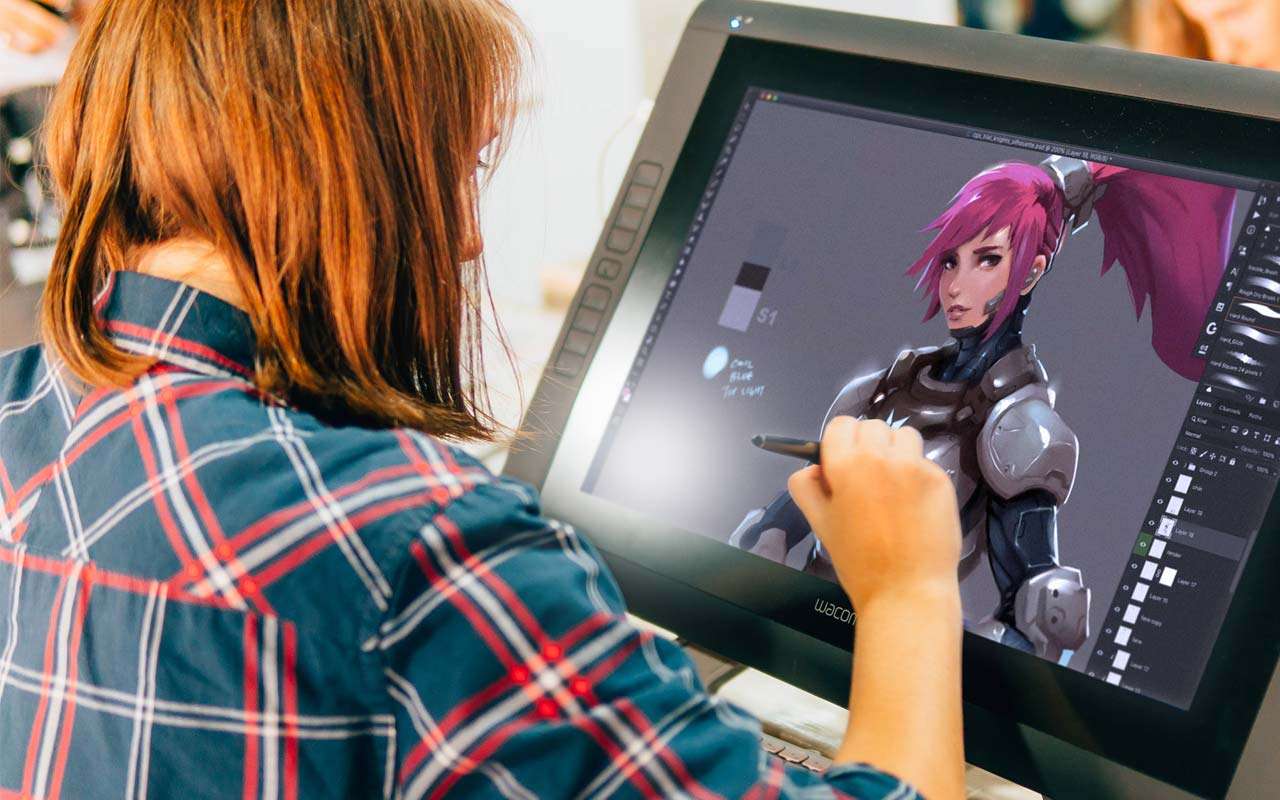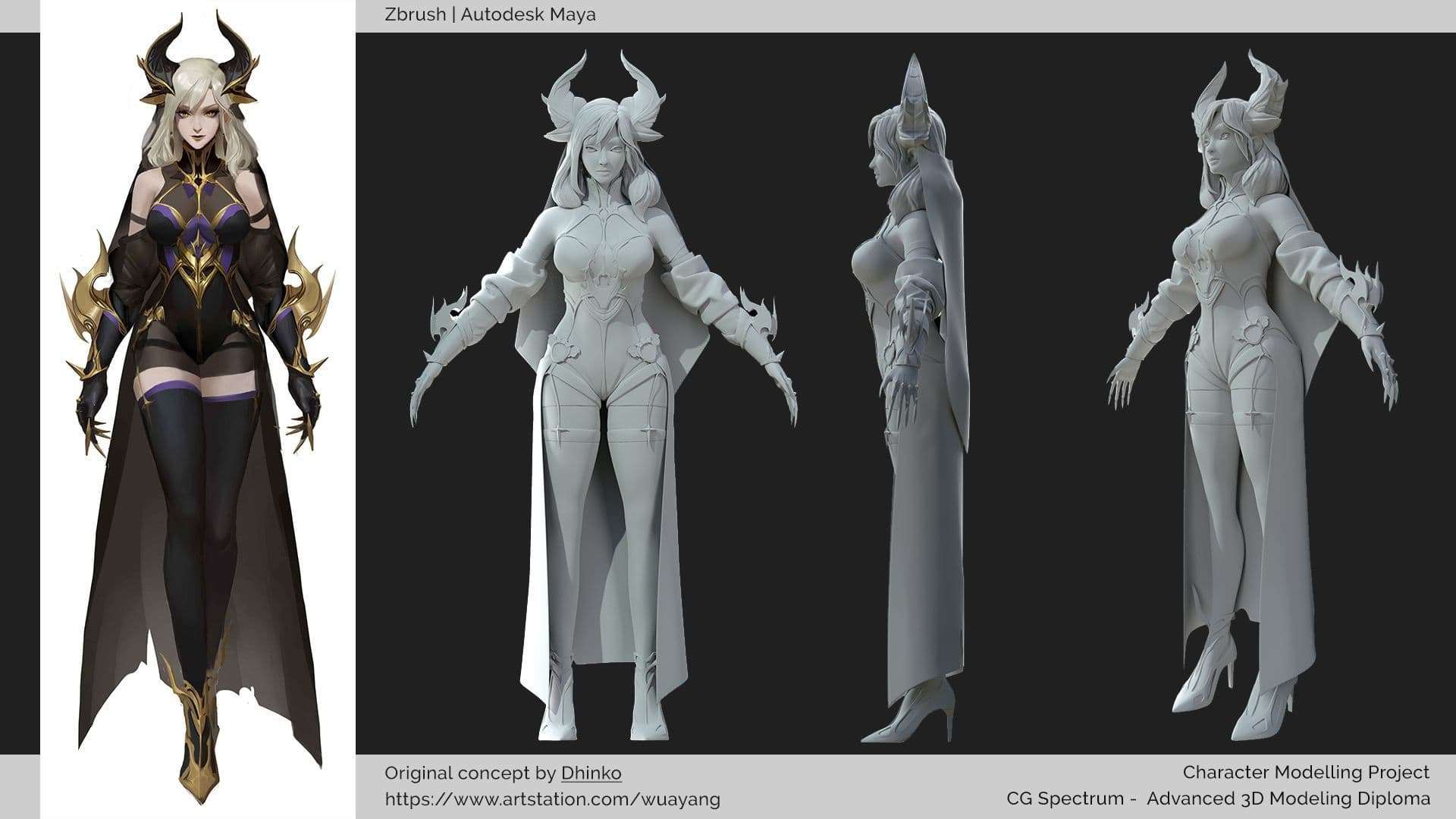
How Do You Land a Job in VFX, Games and Animation?
CG Spectrum's Career Development Manager, Maxine Schnepf, talks about her role and how she has helped kickstart many a career in VFX, Games and Animation.

CG Spectrum's Career Development Manager, Maxine Schnepf, talks about her role and how she has helped kickstart many a career in VFX, Games and Animation.
Image Courtesy of Pietro Trizzullo.
So how do you land your first job in VFX, Games or Animation? Talent? Yes. A bit of luck? Ya that too. We can also testify to the support of the community around you to help you launch your career: Collaborations with your peers, showcasing your skills at The Rookies, and if you're lucky enough to be studying at schools like CG Spectrum, you will have the support from Industry Mentors and Career Development Managers like Maxine Schnepf.
Maxine took time out to speak to us about her role and how she has helped kickstart many a career in the creative industries. If you are looking to land your first job in VFX, Games or Animation, this article is for you!
I’m the Career Development Manager at CG Spectrum College of Digital Art & Animation, and the main part of my job is to help students find work after graduation. There are quite a few things involved with that aspect of my job, and depending on the situation of the student I offer a number of different resources for them:
I also work with some of our other departments and teams here at the school to organise other initiatives like industry-related webinars and events, and I’m also in the process of creating some class content about career and portfolio development that students can access.
As we’re an online school we’re not affiliated with any larger creative film or games projects, however a number of our students are working on indie games, or have been hired at larger studios so it’s always exciting to hear about new projects happening within our community!

Internally we’re always looking for new ways to support our students and give them industry-relevant advice, so I’m working on a new podcast project with one of our mentors and our Digital Content Producer that you should be able to check out later this year! Stay tuned!
My earliest memory about wanting to work in the film and animation industry was when I watched The Lion King on VHS as a child. There was a “behind the scenes” special at the beginning of the movie where it showed the artists and animators working at the Disney Studio, and they brought in real live lions to the studio so they could study them. I thought that was so cool as a kid, seeing them use real references for the animations, and I remember telling my mom that I wanted to be an animator at that time. While I drifted away from the animation idea over the years, my parents always supported my creative mind throughout my schooling.
I see my career in two parts - first was my experimental stage immediately after I graduated college (I specialized in VFX and Editing). I didn’t really know what I wanted to do at that point in my life, and I didn’t actually have a strong portfolio of work. I got an internship at a boutique VFX studio in Toronto which primarily did commercial advertising work. That led me to a series of full-time jobs at similar advertising companies as I learned more about the industry within various creative and production-related roles. Most of which didn’t have much to do with what I studied in school.
While that internship was technically my first “big break”, it wasn’t until about 4 years in that I actually got a job at a studio working on feature films as a Production Coordinator. I truly believe that I wouldn’t have gotten into the film industry, and had the opportunity to work on such amazing projects if I hadn’t gone through the experience of working at some smaller studios first.

It took me about 4 years of working at various smaller studios in different roles to realise that I was meant to be on the production side, rather than being an artist. Even though I was always a creative person, I am even more of a “people person” at heart, and my strengths leaned more towards working with artists, rather than actually being the artist myself. I also had a background in retail and receptionist work which I think helped me be comfortable working with clients and having professional communication skills.
Once I eventually achieved my goal and worked my way up to being a VFX Producer, I wanted to continue working my way up to studio management roles. While I could have stayed as a VFX Producer and eventually work my way up to Executive Producer one day, I thought it was more interesting to gain experience in other areas of a studio. For example, as a Producer at one company, I kept struggling with a lack of artists on my projects - also known as “resources”. That’s when I decided to take on a job as a Resources Manager at Mr X where I managed the planning and hiring of multiple departments of artists across our Toronto and Montreal studios. This was great for me because I got to really learn and understand how project forecasting and long-term planning affected the hiring process at a studio.
Similarly, during the pandemic I saw a huge shift in the VFX industry with massive layoffs and job uncertainty as on-set film productions halted. While it was hard for the existing artists to find work and get back on their feet, I started getting worried about the future of entry-level artists and how much harder it must be for them to find work in this difficult time.
I found the position at CG Spectrum College and immediately jumped at the opportunity to guide the next generation of artists and technical professionals into this industry that I care so much about.
I also thought it would be a great opportunity for me to learn more about the gaming industry because I’d be surrounded by so many professionals on our mentor team who work on that side of entertainment.
At the end of the day, all of my job transitions and career path are based on situations I find myself in - if I want to learn more about a specific area of the industry, I try to find jobs where my skills are relevant and I can use them to gain experience in a different department that I’m less familiar with.
I work remotely, so my day typically starts with me walking my dog and getting a coffee at my local cafe. I try to maintain somewhat of a morning routine since I’m no longer commuting to work in a studio.
I then check my Slack messages and emails to see what’s going on in our school community and answer any questions that students may have.
If I’m not teaching a class that day, then I will spend most of my time either recording new class content, meeting with students 1-on-1 for career counselling, or reviewing resumes and giving students feedback. Every day is pretty unique here, which is very different from my past jobs.
Slack is huge at CG Spectrum because it’s where our entire community of over 2000 students, management staff, and professional mentors are contained. We also have a dev team who work on proprietary tools within our Slack community to help us manage all of the students and staff across multiple timezones. While Slack is primarily a chat application, we use it for so much more here at CG Spectrum, like job boards that refresh daily, and event notifications like classes or webinars which happen in different types of channels and chat groups depending on the field of study.
In addition to Slack, I primarily use GSuite (gmail, google docs, google slides, etc) and Zoom for all of our events and meetings. I also occasionally use Premiere to cut together some video recordings.
I work the closest with our Enrolment and Marketing teams to help people feel confident when choosing our school for their studies. I also work closely with the Department Heads and Teaching Assistants for any internal initiatives like portfolio reviews and other events to help support our students.

Students can expect to do a TONNE of research! This is something I guide students through, but it’s really up to each individual to put in the effort if they want to see results quickly. It’s a super competitive industry so it won’t be easy for most people. Within my course students will learn things like:
Two big things immediately come to mind:
Working remotely! Specifically with my role it just makes sense - I’m able to create my own schedule and accommodate people in different timezones more easily.
Despite the fact that I love working remotely, I would love to create more in-person interactions and meetups for our students to help with the networking process. For example, just this month I met with quite a few students who joined us in Canada. It would be so cool to organise a meetup where they could all hangout and get to know each other.
Similarly with my own networking and speaking with studios to gather industry knowledge, it’s much easier to get professionals to meet over a real in-person lunch date rather than a video chat. Most people don’t want to give up their only break in the day for a Zoom call!
I’m going to answer this question in the more general sense of working in the industry rather than my specific role or the positions I’ve had. And I’ll preface it with an apology to my boss because I’m really the worst salesperson for our school!
But my answer is no! I’ve worked with many people who don’t have a formal education, or they are educated in a completely different field than what they’re doing now. That being said, the common characteristics between those people is that they are almost always extremely self-motivated, proactive, capable of self-critique, and spend lots of time researching and networking on their own.
If you are outgoing it’s easy to ask for help or critique from people in the industry while you scour the internet for good tutorials and helpful learning resources and materials. For example, both Unreal Engine and Houdini offer a tonne of free educational resources on their websites for people to learn their software. Combine that with some networking and finding your own mentors in the industry, and you might be able to succeed!

So while no, it’s not essential, it’s important to note that most people aren’t naturally outgoing. So asking for help from strangers may be difficult, and working all by yourself without feedback isn’t the most efficient way to improve your skills, especially in these creative and technical fields.
Most educational options are helpful because of the additional resources they provide. For example, at CG Spectrum one of the most valuable resources we offer is not just the course content or 1-on-1 mentor guidance throughout the program, but also the entire community of other students, mentors, and professionals on Slack.
This supportive community helps students in a variety of ways, like networking, getting additional feedback from multiple people, and troubleshooting issues. It’s a sort of “safe space” that a public forum can’t really provide, because it allows people to share not just cool work, but also problems and projects that might still be a WIP (work in progress).
It’s much easier to reach out to an inspiring artist through our internal Slack community, rather than sending a stranger a message on LinkedIn or Artstation. And with over 100 mentors on our team worldwide, there’s always someone to chat to!
I think it’s always important that artists have some soft skills. Important ones for me are:
Research and critical thinking - this goes in tandem with self-critique and communication, but it’s really important for people to do their research while job hunting to make sure that they are presenting themselves in a way that will be appealing to their audience. Whether that’s a recruiter for a large studio, or a client looking to commission an artist. Research helps to give artists context into what other people are looking for when hiring someone.
Get inspiration from something closer to home - many artists focus on super high fantasy, which can be difficult to find references for. Taking photos of objects from around your house, or vehicles, animals, or people in your neighbourhood make it much easier to study and create art because you can see these things from every angle or different lighting conditions.
A passion for the industry. This is something that is WAY easier to showcase now with social media and the internet. For example you could create a blog where you share your educational journey, a GitHub account where you share tools that you’ve created for the software that you use, or a Youtube channel where you review movies or share info about the industry. Or even just a TikTok account where you make funny or trippy videos while using the creative skills you’ve learned.
Some great examples of this are:
Not doing enough research about the companies they are applying to. You really want to look at your application (portfolio, resume, cover letter) and ask yourself if what you’re presenting would be appealing to the place you are applying to. The only way to answer this question is by doing research on the company, the people who work there, and the types of projects they work on.
One of the most common issues I hear from students is that they start to feel negative about themselves when comparing their work to other people in the industry. My strongest advice in this area is to use this feeling of inadequacy for improvement rather than jealousy. For example, if you see an artist create something really cool, rather than feeling bad about yourself because your work isn’t as strong, use this as an opportunity to learn.

You can reach out to that artist and ask them how they achieved that specific look or effect. In most cases they will reply and help you out, because people typically respond well to flattery! This will also help with networking and getting confident at reaching out to people.
A good mentor is someone who believes in you, but doesn’t hand you anything. They allow you to see the best parts of yourself, which is vital to keep moving forward in the industry.
Because our introductory courses are designed for people with no background knowledge, there isn’t much else to prepare, unless you start with one of our Advanced courses which require a portfolio review. That being said, it’s important to start your course with an open mind, ready to receive feedback and critique, and ready to work hard.
None of this is easy and because animation, games, and VFX are such competitive industries, it will take a lot of time and additional effort outside of just the course material to really stand out. The more time you dedicate to your learning and practice, the quicker you will see improvement in your work. Professionals spend 8+ hours a day working on their craft - they don’t get this good overnight!
In terms of questions, I suggest students talk to their mentors about other things in addition to the course material. For example, you could ask them things like “What was your first job in the industry?” or other career-related questions. This helps to give context and guide students down their own career path.
Don’t be afraid to ask for help. In a typical studio setting, it’s common to turn to the person next to you and ask them for advice, or to reach out to your Lead or Manager when you have an issue. Many artists starting out feel like they have to do everything by themselves or else it’s “cheating”, but the industry is a much more collaborative place. At CG Spectrum it’s great because we build that into all of the programs by pairing students up with mentors. That being said, it’s vital to always provide credit for anyone who contributed to your project, so if someone created an asset that you’re using, or created the concept art for your project, you should mention that if you’re presenting it in your portfolio.
First and foremost they can expect some self-reflection to happen. Especially because we’re an online school in 60+ countries, there is no “cookie cutter” approach to job hunting - and I would be wary of anyone telling you that there is! So a lot of my methods require a personalised approach, and they require the student to really think about their strengths, weaknesses, and other factors of their personal situation like location, financial stability, etc.
Create a stronger portfolio! I didn’t really understand how to make a good online portfolio when I graduated school. I struggled so much with the web design aspect that I wasn’t able to just present my work clearly and effectively. Nowadays there are free or cheap alternatives to creating a portfolio website or hosting your artwork in a consolidated space, like Artstation or The Rookies. I don’t like to play the “what if” game, but I always wonder how my career would have ended up if I had a better portfolio to share back then, and if I’d be in more of a creative position now! Luckily I’m pretty happy with where I’ve ended up and I can use my experiences to guide others as they break into the industry.
You can learn more about Maxine and the work she does at CG Spectrum via LinkedIn or on the CG Spectrum Career Services page.